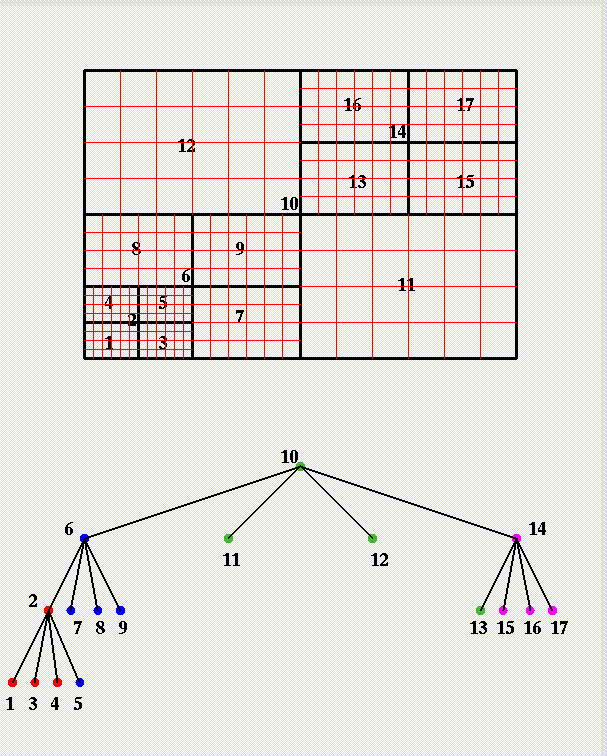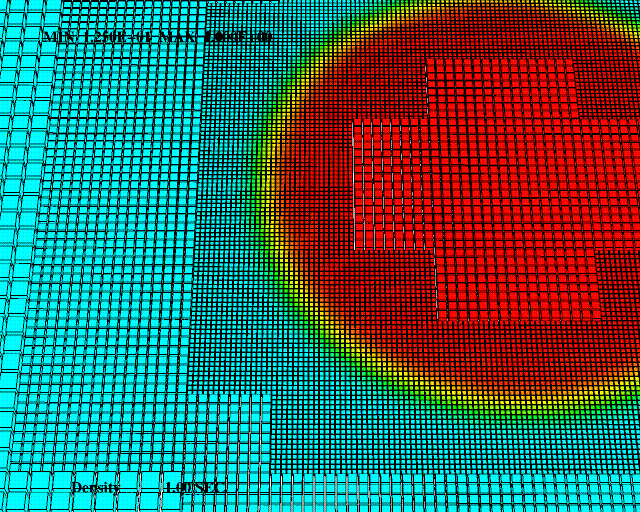

To provide a tool to enable code developers to easily add a parallel adaptive mesh refinement (AMR) capability to their applications that currently use uniform regular meshes.
A package of FORTRAN 90 routines has been developed to provide an application developer with an easy route to extend an existing serial code that uses a logically Cartesian structured mesh into a parallel code with AMR.
The package builds a hierarchy of sub-grids to cover the computational
domain, with spatial resolution varying to satisfy the demands of the application.
These sub-grid blocks form the nodes of a tree data-structure (quad-tree
in 2-D or oct-tree in 3-D). Each grid block has a logically Cartesian mesh,
and the index ranges are the same for every block. Thus, in 2-D, if we begin
with a 10 x 20 grid on one block covering the entire domain, the first refinement
step would produce 4 child blocks, each with its own 10 x 20 mesh, but now
with mesh spacing 1/2 that of its parent. Any or all of these children can
themselves be refined in the same manner. This process continues until the
domain is covered with a quilt-like pattern of blocks with the desired spatial
resolution everywhere.

The package provides a new parallel superstructure to the application. The necessary sections of the original serial application are inserted into this superstructure at the appropriate places. The package manages the grid-block tree structure and all inter-block and inter-processor communications. It has been designed to perform efficiently on cache-based architectures.

Several of the Grand Challenge teams have milestones that demand a high-performance AMR capability. This software will provide them with a tool that can enable them to meet these milestones. The package, which implements basic domain decomposition strategies, should also be useful as an aid in migrating general users' applications from a serial to parallel environment.
The package is currently being tested by a number of "friendly" users to identify any essential components that may be missing and to provide feedback on the clarity of the package structure and documentation. A Web site describing the package in detail and providing access to its source code is under construction. Development plans include tuning for efficient CRAY T3E performance and provision of MPI and BSP communication support for portability.
Peter MacNeice
Hughes STX Corp.
Goddard Space Flight Center
Peter.J.Macneice.1@gsfc.nasa.gov
301-286-2061
Kevin Olson
Drexel University
Goddard Space Flight Center
olson@jeans.gsfc.nasa.gov
301-286-8707
Clark Mobarry
Goddard Space Flight Center
Clark.M.Mobarry.1@gsfc.nasa.gov
301-286-2081
Rosalinda de Fainchtein
Hughes STX Corp.
Goddard Space Flight Center
Rosalinda.K.DeFainchtein.1@gsfc.nasa.gov
301-286-7066
Table of Contents | Section Contents -- Applications | Subsection Contents -- Inhouse Computational Scientists